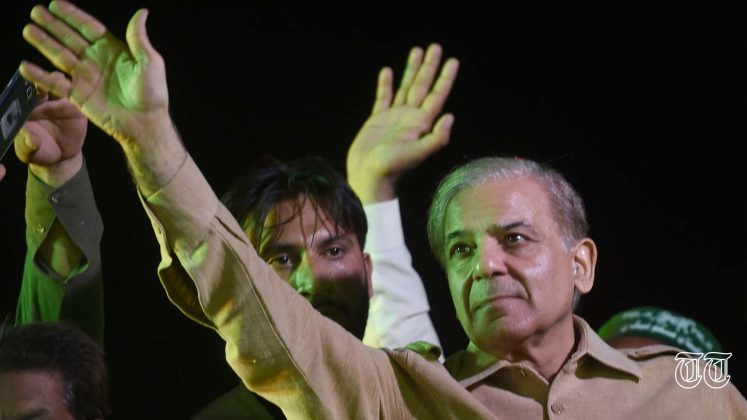In what seems like an enraged tantrum gone rogue, the Pakistan Tehreek-i-Insaf parliamentarians have voluntarily tendered their resignation for their positions ahead of elections for the position of prime minister-elect. Challenging the seat entirely unopposed, the younger brother of political mogul Nawaz Sharif has won the post and is predictably set to take his oath tonight.
The atmosphere, as of the late 48 hours, has been one of great tension. There are two schools of thought at the moment: one, the pro-Shehbaz side, consists of the majority of public opinion spanning all sides of the spectrum – journalists, a host of political parties from left to right, equal rights movements (such as the notorious Aurat March organisation), and many NGOs. The other, largely, is a pro-Khan crowd concentrated on the Overseas Pakistani population, as well as those in more dense areas such as KP, Lahore, and Karachi.
These areas are filled with protestors acting on behalf of former PM Khan’s calls for people to raid the streets after the Isha namāz, rejecting PPP chair Bilawal Bhutto’s notion of the return of a ‘Purana Pakistan’. This outburst of support for the former skipper is not astonishing, but their drive towards such has been questioned:
The PM-elect has already tackled these allegations, which he dubs as mere “drama”, head-on. “If there is any reasonable evidence backing up the claim that we negotiated a regime change with foreign powers, I will resign immediately.”
There are already a number of policies Sharif is looking to incorporate into the national stage. He wants to improve relations with China: under his brother’s former governance, the CPEC had brought a multitude of trade to the Gwadar region. The relationship of the country with India had also been strained under the Khan government, he added; he has promised to improve relations between the two nuclear states.
With the PTI lawmakers having conducted a large-scale walkout, the lower house of the government will run in a curtailed fashion. There is no doubt that this will create a strain on the already-tense political environment in Pakistan—the PM-elect is staunch on his platform however, determined to not let this bother him.
The prime minister-elect has confirmed that his main strategic goals for the Pakistani nation was the advancement of foreign policy. The nation’s relationship with its “very close friends”, namely Saudi Arabia, China, the UAE, Iran, the U.K., and Turkey, had been strained under the Khan government, he said in address to parliamentarians. The rupee’s value had crumbled on an unprecedented scale in the past four years: to boost such, the PM-elect has pledged to boost economic output in the nation, starting with Chinese investment. Under his brother’s former government, the China-Pakistan Economic Corridor, or CPEC, had brought a multitude of trade to the region. Beijing, added Sharif, was Pakistan’s time-tested friend: he would not let such relations sour again. Along with this, Sharif admits that relations with India had been severely strained. He has promised to improve relations with Modi, and widen the scope of investigation into the longstanding Kashmir issue, something which had been “neglected”—the two nuclear states, he noted, with a shared history are in “dire need” of an enhanced alliance.
The Kashmir issue is not the only point of concern for Sharif’s cabinet, he claims—the Palestinian and Afghani crises are also on the table for discussion.
In the heat of a supposed U.S. regime change, the PM-elect has also guaranteed the improvement of Pakistani-American relations. It is pertinent to note that there has been a lack of correspondence between President Biden and the outgoing Prime Minister Khan: whether Biden decides to communicate with PM-elect Sharif is still a mystery.
Other undertakings covered in Sharif’s maiden address include a raise in the minimum wage—from 15,000 rupees to 25,000—as well as a 10% increase in pensions. Soaring energy prices are also set to be improved. A Ramadan package, including the provision of wheat flour, is also set to be provided to working-class folk. The Benazir Income Support Program, an initiative of the 2008 PPP government, is also set to be reintroduced.
In his past tenure as the Chief Minister of Punjab, Shehbaz Sharif was notorious for his ‘laptop scheme’—now, as the prime minister, he has promised to extend this to other provinces, starting with the oft overlooked Balochistan and former FATA region.
The promises the PM-elect has made have already proved successful: the Karachi Stock Exchange is on an uphill incline and the rupee is also bouncing back; thus far, it has declined by 8 rupees against the U.S. dollar, a feat which Sharif insists is a reflection of the “happiness of the people”. Only time will tell now as to whether these ideas of brute strategic alliance pan out in the long-run.






